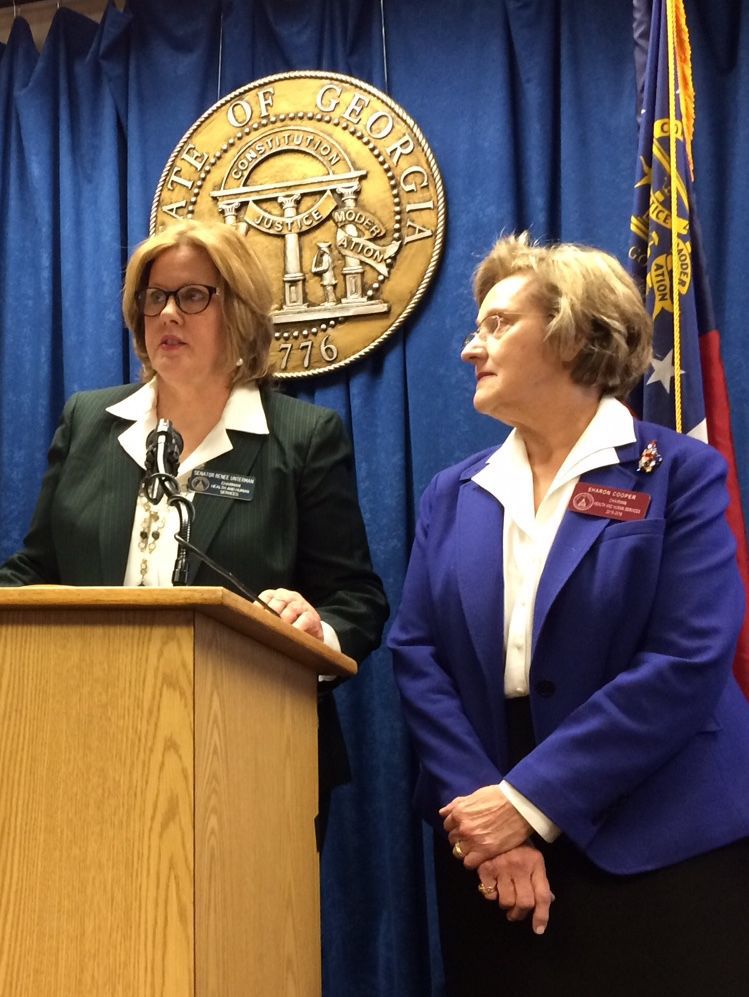Revived plan broadens reach of dental hygienists
Published 6:30 pm Tuesday, December 20, 2016

- Sen. Renee Unterman and Rep. Sharon Cooper team up for another go at expanding the reach of dental hygienists in Georgia. They both lead the health and human services committees in their chambers, making them a powerful pair.
ATLANTA – Lawmakers will revisit a controversial plan to let dental hygienists work in nursing homes, schools and other settings without the presence of a dentist.
A similar measure failed last session when the Georgia Dental Association withdrew support and fought against the bill, to the dismay of supporters who thought they’d reached a compromise.
Trending
Under the proposal, hygienists could provide preventative care such as cleanings and fluoride treatments without a dentist present.
It would allow them to provide services in senior centers, battered women’s shelters, school-based clinics and other settings with underserved patients. Hygienists in private practices could also continue to work with patients when a dentist is away.
Hygienists in Georgia can currently work alone in public health departments.
The move is meant to extend oral care to areas, primarily in rural Georgia, with shortages of dentists.
Dentists, however, expressed concerns last session that the change could leave patients thinking that a cleaning is as good as an exam, which would compromise the quality of care in Georgia.
About two-thirds of the state does not have enough dentists, according to a pre-filed copy of the bill, and those without access to routine care often turn to the emergency room when more serious problems emerge.
Trending
Most of the country allows hygienists to fill in where services are lacking. Georgia is one of the three states that do not; the others are Alabama and Mississippi.
Rep. Sharon Cooper, R-Marietta, and Sen. Renee Unterman, R-Buford, who lead the health and human services committees in their chambers, tried to meet the dentists’ concerns head on in a press conference Tuesday.
“No one is trying to let dental hygienists in this state, or anytime in the near future, have independent practice,” Cooper said. “This is about working with their dentist to allow them to go out in the community and help our most vulnerable citizens.”
Cooper was the one who hammered out a deal last session that she said left dentists “in total control.” The new proposal is similar to that failed bill.
Dentists, for example, can choose for their staff not to participate. Money tied to any services would come back to the dentist, and hygienists must refer the patients back to the dentist for follow-up exams.
The state’s Dental Association did not immediately challenge the proposal on Tuesday.
In a statement, representatives of the group said they had not seen the bill but looked forward to working with lawmakers.
The group is “optimistic that many of our concerns related to patient safety will be addressed,” according to the statement.
Supporters of widening hygienists’ role, including Vicki Johnson, chairwoman of the state Council on Aging, are hopeful that dentists will be on board this year. She called their last-minute change of heart last session “a big disappointment.”
Johnson said about 70,000 older Georgians live somewhere, such as an assisted-living facility, that could allow in hygienists under the bill.
That could mean life-saving care for vulnerable older residents for whom a tooth infection might otherwise develop into a more serious condition.
For those who already receive care, visiting the dentist can mean a ride in an ambulance. This proposal would change that.
“They can stay in place – with the aging Baby Boomers, this is critical – and at least get their teeth cleaned,” Unterman said.
“They can already get their hair fixed,” she quipped.
An estimated 1.1 million Georgia children have limited or no access to basic preventative dental services, according to research cited by the state Dental Hygienists’ Association.
Providing preventative care to just one-fifth of those children, the group says, would save the state’s Medicaid program millions of dollars every year.
Jill Nolin covers the Georgia Statehouse for CNHI’s newspapers and websites. Reach her at jnolin@cnhi.com.


